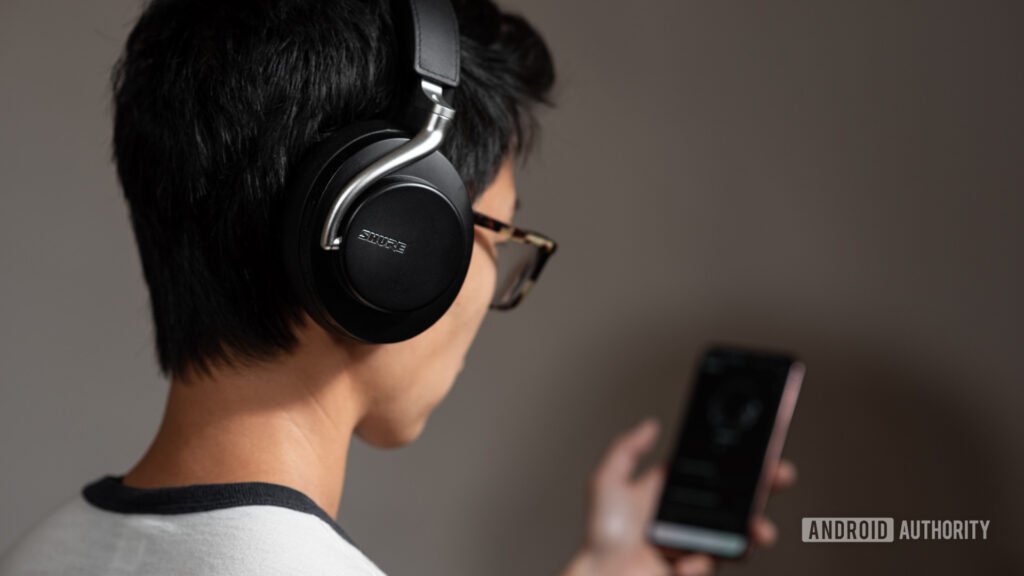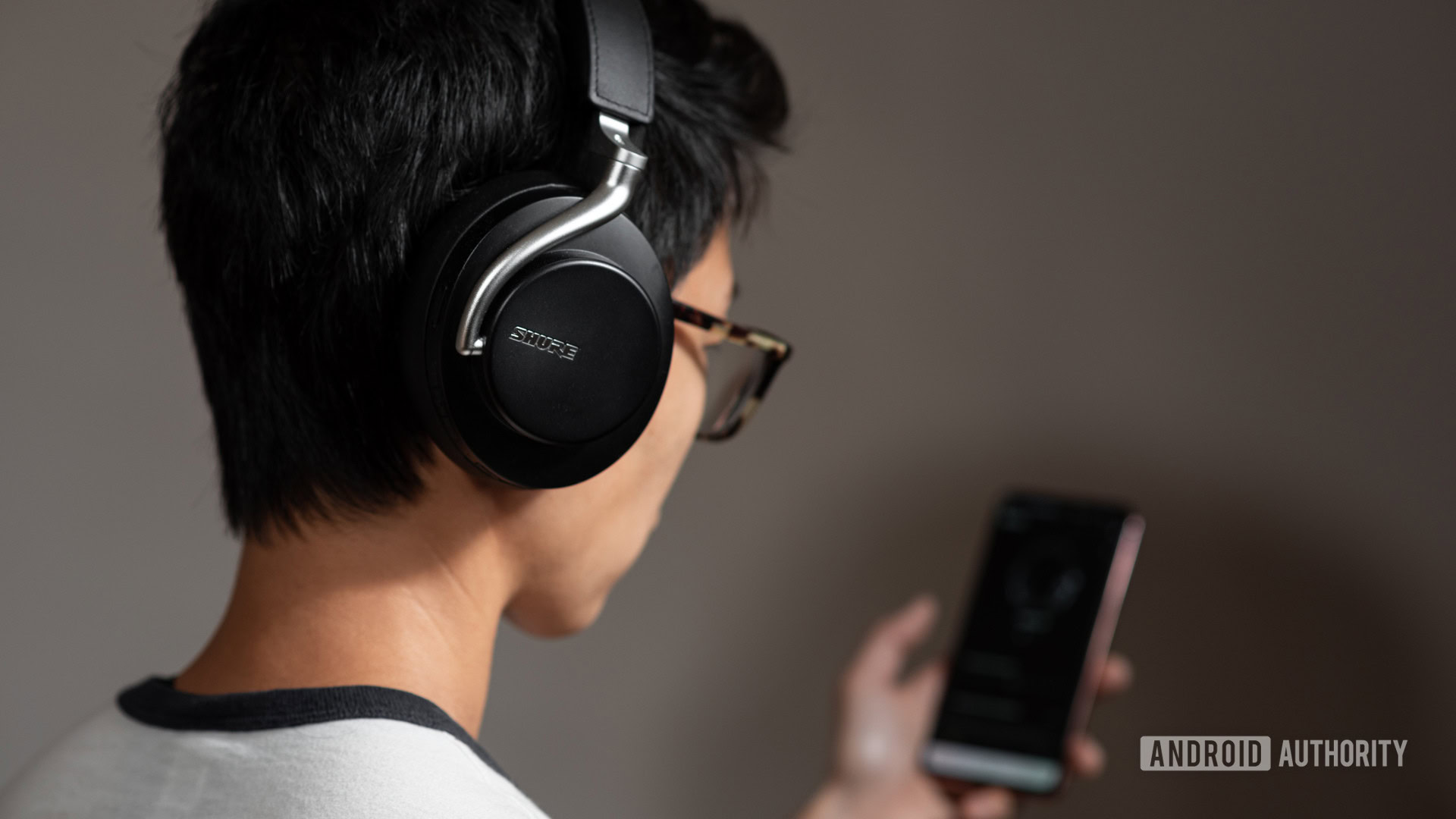
Lily Katz / Android Authority
With the introduction of Qualcomm’s aptX Lossless know-how, Bluetooth headphone prospects will lastly be part of their wired audiophile brethren with the choice to take heed to lossless high quality audio. The promise, as at all times, is superior sound. However whether or not that is actually a game-changer on your future listening habits is determined by who you ask.
On the one hand, present wi-fi merchandise are a number of the best-sounding headphones in the marketplace, packing in highly effective noise canceling, digital assistants, and customization choices you’ll seldom discover within the wired house. Plus, there are solid-sounding Bluetooth codecs already in the marketplace, together with LDAC and aptX HD. Nevertheless, audio purists will inform you there’s no substitute for the sound high quality of lossless audio. It’s a debate that’s raged for the reason that improvement of the MP3, however who do you have to consider, and is lossless Bluetooth audio actually that vital?
Do you make a degree to contemplate Bluetooth codecs when shopping for headphones?
4371 votes
Lossy vs lossless audio: What’s the distinction?
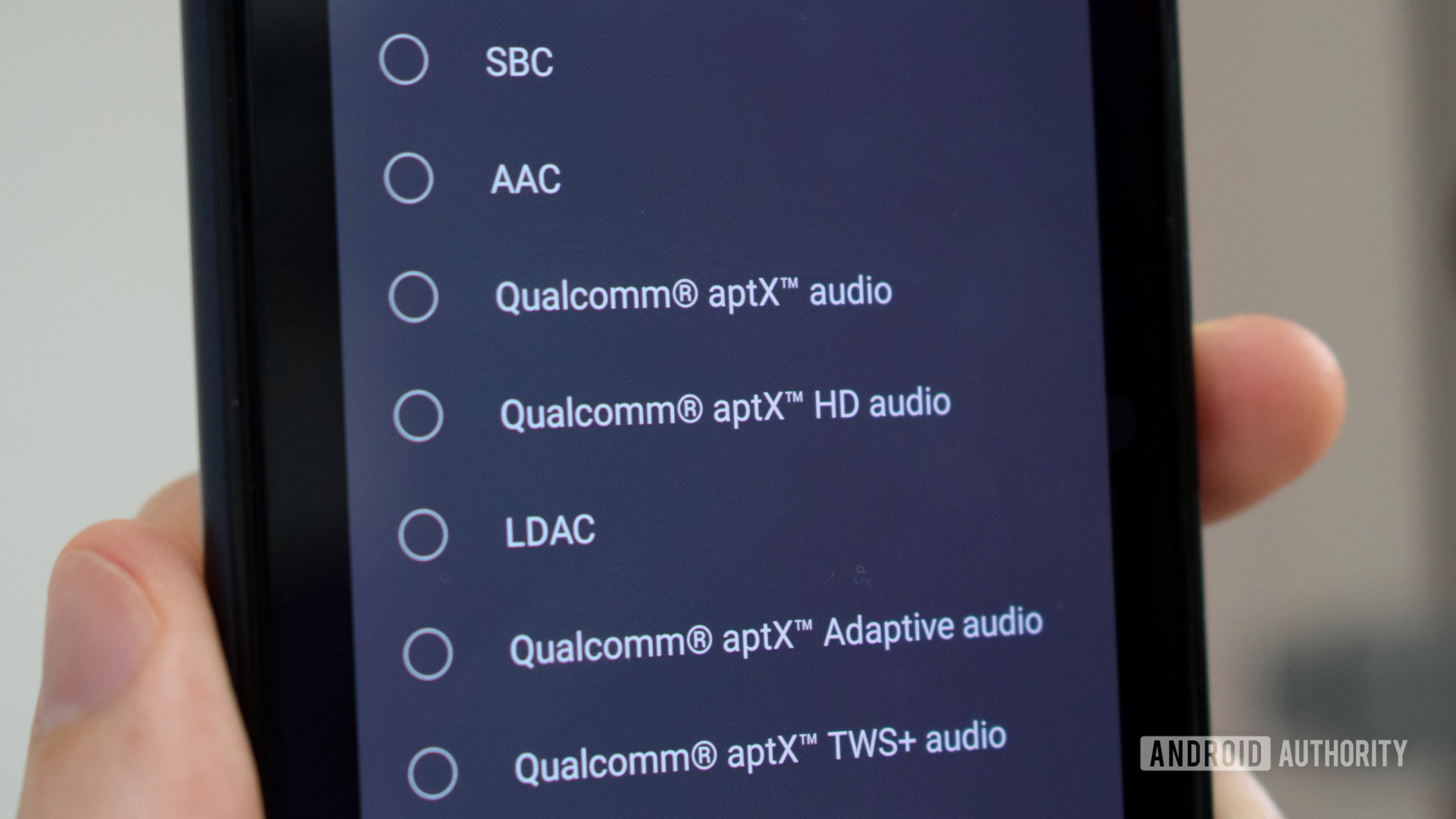
Robert Triggs / Android Authority
Developer choices
Let’s begin with a fast primer on lossy versus lossless audio. Each are forms of digital file compression designed to shrink the scale of a music file or stream. Compression was initially very helpful to cram as many tracks as potential onto your iPod or MP3 participant. As we speak it avoids consuming up your 4G/5G knowledge restrict too rapidly whereas streaming.
Because the names suggest, lossy compression throws away some knowledge from the unique file to avoid wasting house, whereas lossless offers you a wholly trustworthy replica with no loss when uncompressed, therefore the controversy about audio high quality variations.
Lossless compression is achieved by way of encoding methods designed to optimize an audio file’s measurement with out throwing something away. Huffman coding is a primary instance of this. You’ll be able to consider lossless music as a bit like a .zip or .rar file, however reasonably than being general-purpose, lossless music information use encoding algorithms particularly designed for optimum audio compression. Widespread bodily file sorts embody FLAC and Apple’s ALAC, whereas aptX Lossless is the one Bluetooth codec at the moment on this class.
Lossy compression is extra difficult, and there’s a wider vary of methods and fashions employed to shrink file sizes. The widespread theme is that they’re primarily based on frequency area psychoacoustic compression, eradicating components of the audio sign which can be already masked or very troublesome to listen to primarily based on the traits of human listening to. In concept, you shouldn’t hear any distinction. Nevertheless, the extra aggressive the compression, the smaller the file measurement however the better the possibility that the listener will discover what’s been eliminated. Lossy audio file sorts embody MP3, AAC, and OGG, whereas lossy Bluetooth codecs span SBC, LC3, AAC, aptX, aptX HD, LDAC, and others.
Lossless compression at all times sounds nearly as good because the supply, however that doesn’t imply lossy compression is inferior or poor high quality. Strong research level to no discernible choice between respectable bit price lossy compression and the lossless supply. Research have proven comparable outcomes for CD vs Hello-Res information too — though some audiophiles might possess these coveted “golden ears.”
Bluetooth’s limitations concerning lossless audio
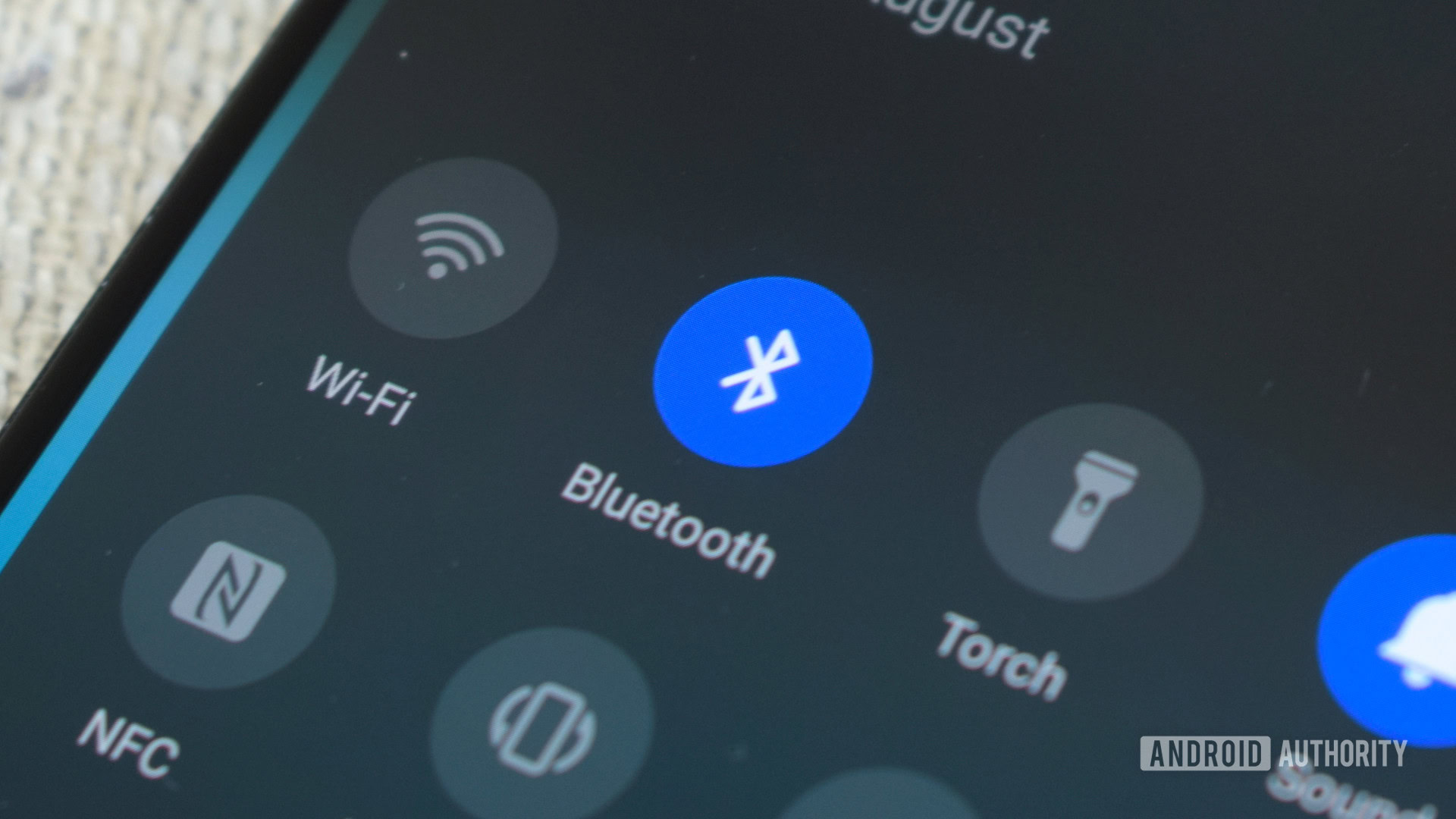
Robert Triggs / Android Authority
Why does Bluetooth use lossy, reasonably than lossless, compression to start with? The issue is that Bluetooth’s knowledge price is simply too low for lossless Bluetooth audio.
Regardless that Bluetooth’s Enhanced Knowledge Price (EDR) can hit above 2Mbps, sustaining that price for real-time knowledge switch just isn’t possible. In actuality, 1Mbps, or typically properly beneath, is a extra life like and sustainable most switch price. That’s not sufficient for 1.4Mbps CD, not to mention 4.6Mbps Hello-Res audio. This restricted pace is because of radio and object interference, packet overhead and loss, and oftentimes, lower than optimum antenna placements.
Because of this, Bluetooth audio codecs have traditionally focused decrease, extra sustainable bit charges utilizing lossy compression. One other manner to think about that is prioritizing playback that’s free from skips and dropouts on the expense of some audio constancy.
Bluetooth audio is traditionally a trade-off between sound and connection high quality.
Compounding the issue is the truth that the unique low-bit-rate SBC codec was designed for voice compression reasonably than high-fidelity music. Regardless of subsequent revisions, third events have stepped in to fill the void with codecs particularly designed to transmit music over Bluetooth. However AAC, aptX, and the LC3 nonetheless goal decrease, sustainable bit charges round 300kbps and beneath. Qualcomm’s aptX HD pushes the envelope with high-end sound, nevertheless it’s nonetheless capped at 576kbps.
Sony’s LDAC was the primary codec to try to sort out the standard and scalability drawback head-on with its 330, 660, and 990kbps high quality choices. The codec additionally claims Hello-Res help and guarantees “identical as CD high quality” playback (word, not bit-perfect playback). After testing, we discovered the 990kbps mode is certainly just about clear for CD-quality audio. Nevertheless, there are nonetheless some small components of lossy encoding, and extra importantly, some units wrestle to supply a glitch-free playback expertise at this bit price. LDAC can obtain near-lossless CD playback, however you’ll typically discover high quality known as again to 660kbps, though we’d argue that’s nonetheless adequate for all however the pickiest listeners.
LDAC can already obtain near-lossless CD playback, however sustained connectivity could be a drawback.
aptX Adaptive is Qualcomm’s different strategy to fixing the connection dropout drawback. This codec dynamically scales its bit price primarily based on the radio setting, lowering high quality in congested areas to keep away from glitches. Earlier than aptX Lossless, aptX Adaptive nonetheless focused a extra conservative 420kbps however will now scale as much as better than 1Mbps for lossless CD-quality audio. Qualcomm’s aptX Lossless is the primary codec to assert absolutely lossless Bluetooth audio, bit-exact playback of CD-quality information, and it additionally seems to have the {hardware} setup to maintain this excessive knowledge price. For now, lossless Hello-Res (24-bit, 96kHz) tracks stay out of attain for all Bluetooth codecs at the moment in the marketplace.
Fast reference bit charges:
- SBC — 200 to 328kbps
- AAC — 128 to 256kbps
- LC3 — 160 to 345kbps
- LDAC — 300kbps, 660kbps, 990kbps
- LHDC-V — 1.2Mbps
- Samsung Seamless Codec — 88 to 512kbps
- aptX — 352kbps
- aptX HD — 576kbps
- aptX Adaptive — 279 to 420kbps
- aptX Lossless — 140kbps to >1Mbps
A more in-depth have a look at the aptX Lossless resolution
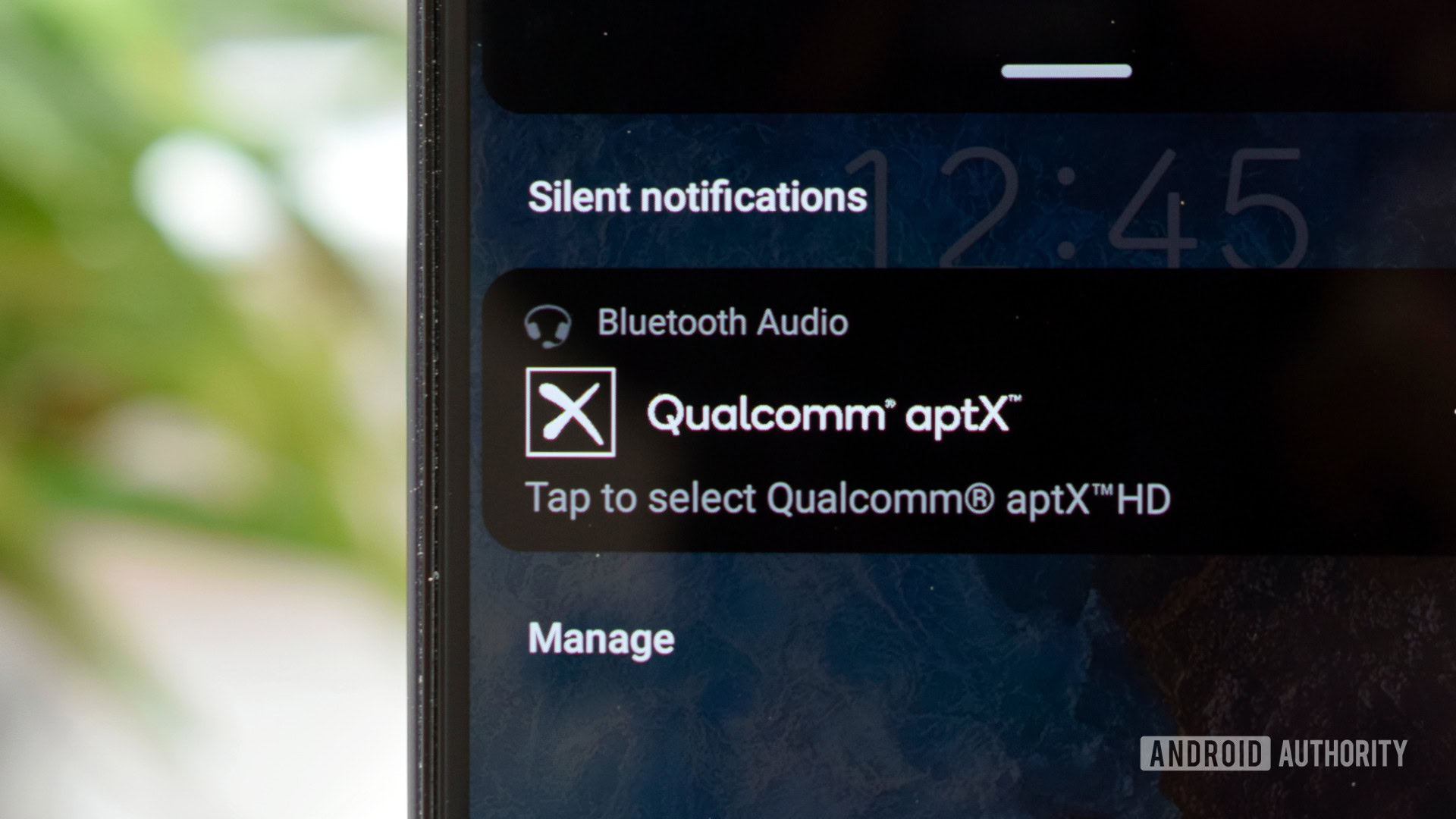
Robert Triggs / Android Authority
Qualcomm’s lossless Bluetooth audio know-how is a two-pronged assault on the issue. First, aptX Lossless helps the compression of CD audio knowledge (16-bit, 44.1kHz) with none loss in high quality, whereas Snapdragon Sound ensures that each playback and receiver units provide a strong sufficient Bluetooth connection to maintain the required knowledge price with out dropping packets.
Qualcomm’s Snapdragon Sound encompasses Bluetooth radio parts, Wi-Fi and Bluetooth co-existence administration, and an optimized software program stack to make sure a strong reference to minimal overhead. With out these optimizations, Qualcomm notes that it’s not possible to maintain aptX Lossless high quality audio.
aptX Lossless is a {hardware} and software program resolution to Bluetooth’s bit price drawback.
As well as, aptX Lossless falls below the aptX Adaptive device suite, that means units will profit from Qualcomm’s different codec options too. For instance, audio bit price scales from lossless proper all the way down to 140kbps with out interruption in the event you wander into an space with excessive radio interference, so there aren’t any glitches or dropouts. aptX Adaptive additionally helps 24-bit 96kHz playback, albeit with lossy compression, and a dynamic low latency mode for avid gamers and voice calls.
There are just a few caveats, although. For starters, present aptX Adaptive merchandise gained’t mechanically obtain Lossless help — not less than not with out a firmware replace. You’ll additionally want Snapdragon Sound-certified units on each the transceiver and receiver finish to profit from lossless audio. So it would take some time for units to permeate the market with a large portfolio. Sadly, not all Snapdragon Sound units will essentially help aptX Lossless, so understanding precisely what you’re getting may not be as crystal clear appropriately.
Is lossless Bluetooth audio truly helpful?
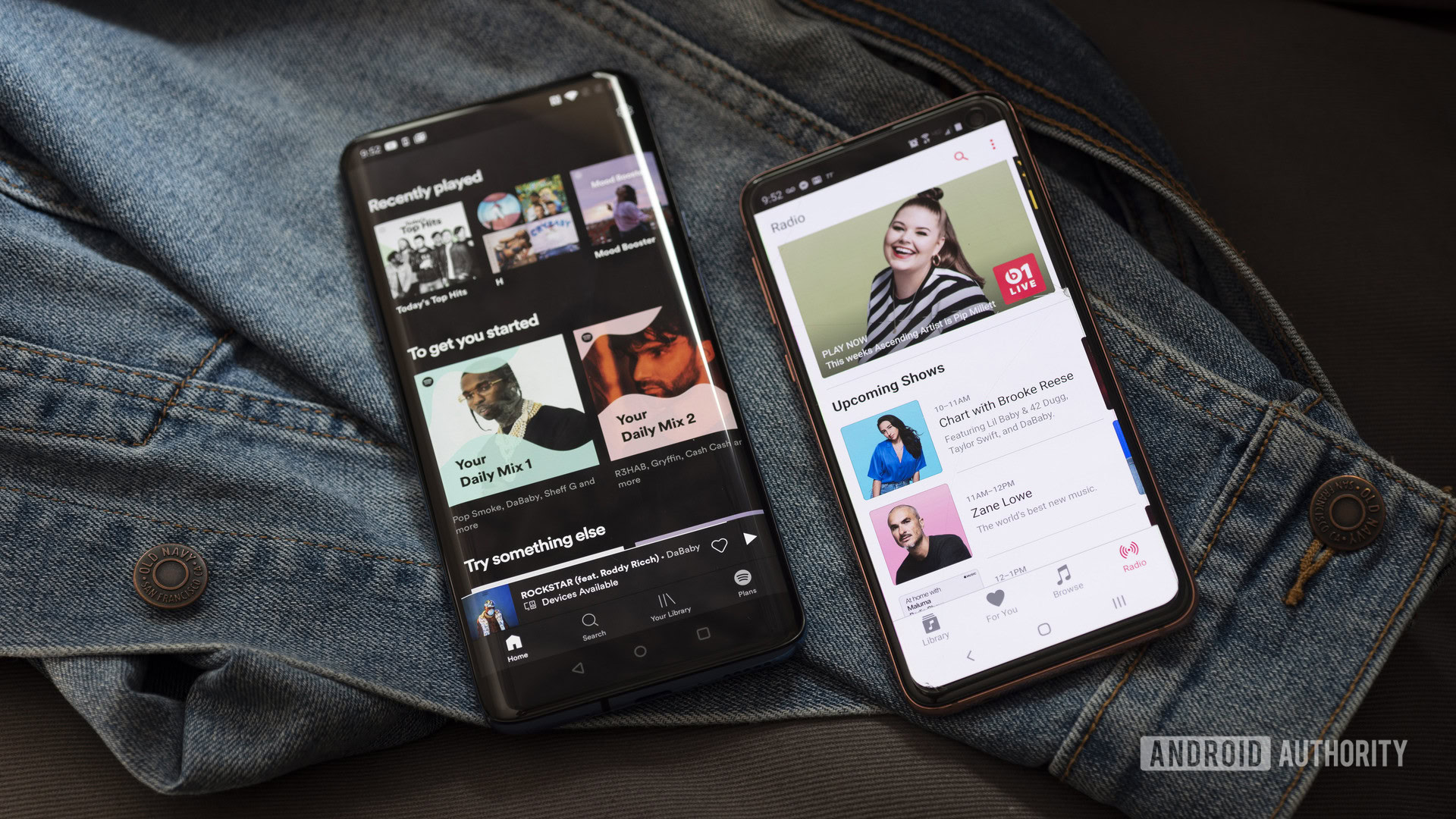
Lily Katz / Android Authority
The prevalence of compression-heavy music streaming companies has, till lately, made lossless Bluetooth audio an pointless luxurious that in all probability crossed few folks’s minds anyway. A lossless wi-fi connection to your headphones is redundant in case your supply is already compressed.
Nevertheless, there’s a rising marketplace for companies providing music streaming and downloads in lossless CD and Hello-Res high quality. Apple Music, Amazon Music, TIDAL, and others provide high-resolution and/or lossless tracks to stream and obtain. It’s these prospects, and people with their lossless audio assortment, that stand to profit from aptX Lossless help when listening through Bluetooth.
In any case, it’s reasonably pointless to stump up a premium for Apple Music’s lossless ALAC information solely to have them downgraded to lossy AAC when listening again through your AirPods Professionals. Nevertheless, prospects with lossy music collections or these nonetheless streaming from extra reasonably priced suppliers seemingly gained’t understand any advantages with lossless Bluetooth audio over present high-quality lossy Bluetooth codecs.
Clients with a lossless music assortment stand to profit from CD-quality Bluetooth audio.
With lossless CD high quality, radio-aware scaling, low latency gaming and voice, and Hello-Res help, aptX Lossless is the business’s most sturdy Bluetooth audio choice. Nevertheless, there’s nonetheless prone to be some debate about whether or not Qualcomm’s customary presents a perceivable enchancment to audio high quality and which Bluetooth audio codec is the very best decide for customers with a Hello-Res library. Plus, whether or not the proprietary nature of Qualcomm’s know-how will restrict client adoption versus extra common help for SBC and the upcoming LC3 codec.
Finally, the very best Bluetooth codec is the one supported by each your headphones and smartphone or music participant. aptX Lossless has some reasonably steep necessities on the {hardware} facet in comparison with present requirements. Some headphone corporations are investing on this now, like Nura with the True Professional Wi-fi earbuds. What do you suppose?
Do you care about lossless audio high quality over Bluetooth?
1982 votes
The prospect of lossless audio through Bluetooth will lastly permit prospects to benefit from the premium streaming choices littering the market, setting Qualcomm up because the chief in terms of Bluetooth audio high quality — though these with a penchant for Hello-Res music collections will seemingly follow their wired headphones for a bit longer.
Even so, lossless CD-quality audio over Bluetooth is nice information for audiophiles, who can now benefit from the bonus of revisiting previous arguments on the deserves and audible notion of lossy versus lossless compression and CD versus Hello-Res music high quality. Thanks, Qualcomm.
FAQs
Sure, aptX Lossless can ship lossless Bluetooth audio, however this requires a Snapdragon Sound gadget just like the ASUS Zenfone 9 and appropriate earbuds.
To obtain lossless audio over Bluetooth, you’ll want a Bluetooth 5.3 gadget with a contemporary Snapdragon processor and earbuds with the Snapdragon S3 or S5 chips.



